Foodsight
Independent Education Edition
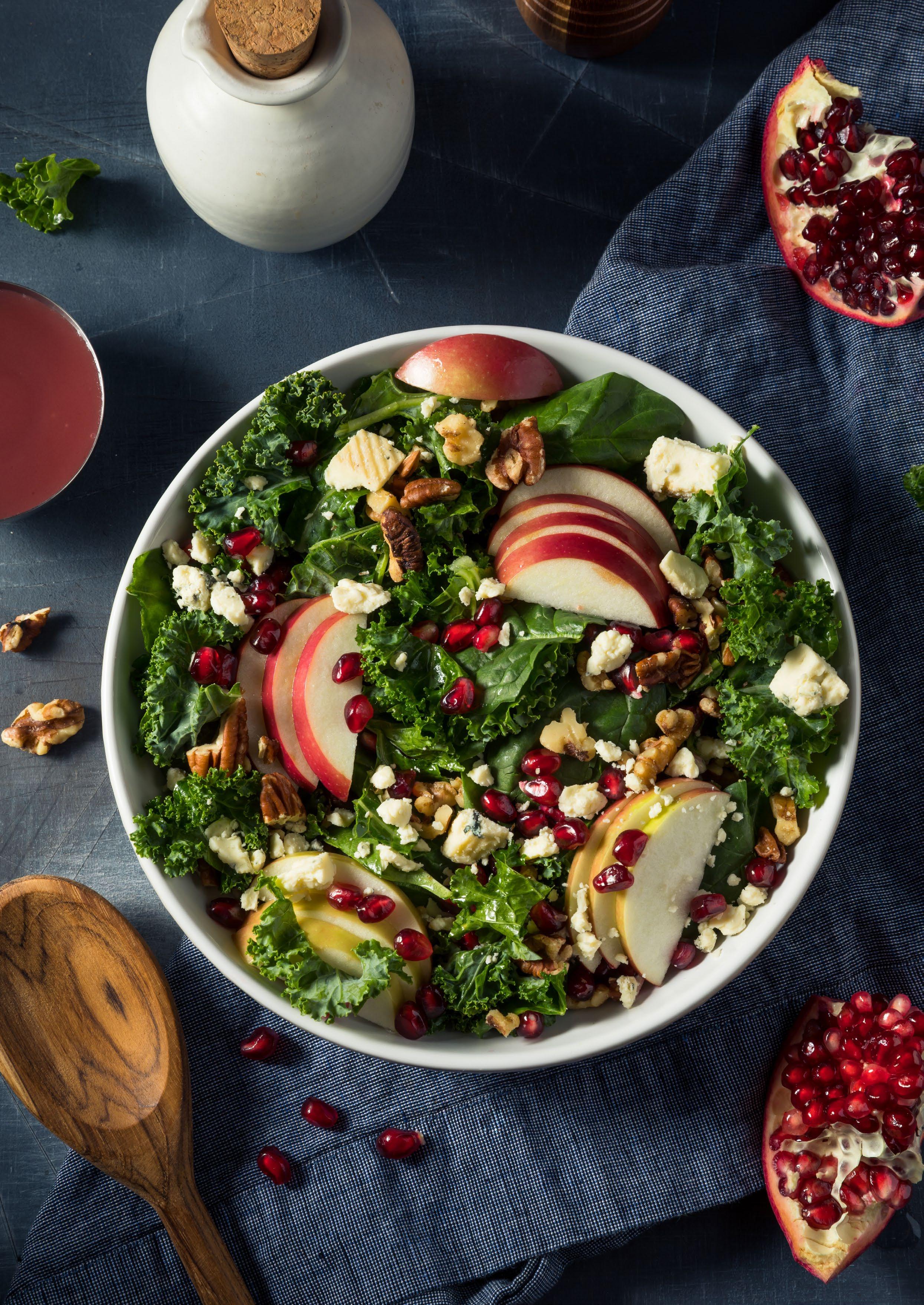
Shaping tomorrow’s menus: insights for the new school year
Authorised Buying Lists: your guide to safer choices
Biodiversity & the food chain: why it matters to schools



Shaping tomorrow’s menus: insights for the new school year
Authorised Buying Lists: your guide to safer choices
Biodiversity & the food chain: why it matters to schools

A distinctly autumnal feel is in the air as we welcome you to this, the latest edition of Foodsight… and to the dawn of another school year.
Perhaps you took the opportunity to switch off over the summer. But as you tune back in to day-to-day life, the headlines about food inflation may well have already grabbed your attention. For example, in August the Times published: ‘UK food price inflation jumps to 17-month high’.
In this publication, we dive into inflationary impacts and explore forecasts and commodity movements. Not everything is on an upward trend and there are some ingredients that it may well be wise to consider using as an alternative to those feeling a greater impact of sharp or ongoing increases. You can find a great deal of detail about this, and about produce availability, on pages 5 to 11.
September is normally one of the two annual windows when supplier price increases come in. But allmanhall’s team of expert CIPS-qualified buyers have been proactively negotiating and working hard over the summer to stave off the proposals until October. This delay will benefit schools up and down the country, as the usual seasonal price increases won’t be felt by allmanhall clients at the start of this autumn term.
This theme of responding in an informed and agile way to create positive outcomes is one that you’ll notice throughout this edition of Foodsight. From the financial as well as environmental benefits of more sustainable alternatives on your school’s menus, to keeping abreast of trends such as ‘conscious eating’. And from respecting the ingredient to fully understanding the role of allergen management tools and access to nutrition training… as you read on you will encounter opportunities to do things that are good for your students and for the planet, all the while helping to make your school’s food spend go further. It needn’t be a trade-off.


Hot off the press, allmanhall have been awarded Best Sustainable Food Procurement Solution for the 5th year running. Perhaps unsurprisingly then, in this edition you’ll find a number of articles and reports focussing on sustainable and responsible solutions, to act as guidance for the year ahead.
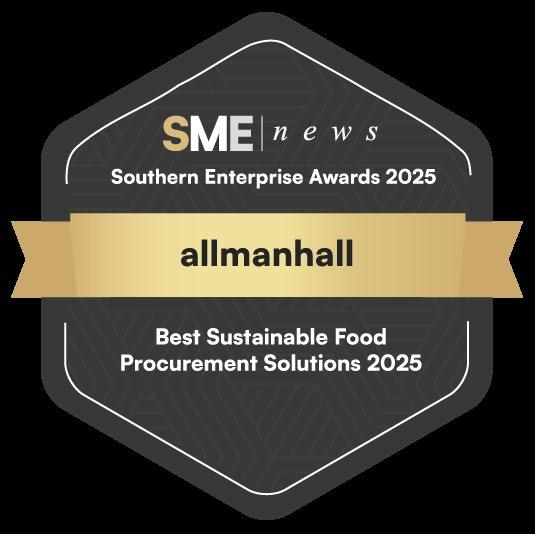
Before you read on, please allow us to welcome all those joining our growing independent education client community of schools this academic year. There are a great number, and we cannot wait to support each and every one!
We also thank those of you who have been with us for longer; at the end of last term and over the summer break, a number of independent schools took the decision to extend for up to a further five years. This was both humbling and rewarding, as were the kind words from the client at our very first school partner as he retired in July after 17 years of working together: “It is, as ever, the people that make allmanhall special.”
There is so much happening in the run up to the festive period - see page 46 for more on that! For your peace of mind, we are here to support you and your teams, to deliver ongoing sustainable value.
The whole team at allmanhall would like to wish you and your school community the very best start to the new academic year and everything it brings.
All the best,



- Jo Hall, Co-owner, Development & Marketing Director

Commodity updates & heatmap
Food trends shaping this academic year and beyond
Blogs summary - for anything you might have missed
Authorised Buying Lists - what you need to know
Insights and training from our Registered Dietitian
An operational review to save you time and money?
Biodiversity’s impact on food supply and prices
Wildfarmed - from beetles to buns
Transparent and responsible food supply
ISBA Charity Challenge - making every pound go further
Planning ahead for Christmas




“Based on recent and forecasted inflation spikes, reported by both the ONS and BRC, catering teams may want to revisit what they have budgeted for annual food inflation for the coming months. allmanhall consistently outperform inflation with price rises lower than inflationary rates, ensuring every pound of catering spend goes as far as possible.”

Oliver Hall Co-owner & Managing Director



FAO World Food Price Index
FAO World Meat
FAO World Dairy
FAO World Cereal
FAO World Oils & Fats
FAO World Sugar
Exchange (£/$)
PPI Input from home produced food
PPI Inputs from imported food
PPI output from food production
CPI food UK
Brent crude oil ICE EU
Diesel bulk wholesale UK
Rapeseed oil - Rotterdam ex-works
Wheat Milling Euronext Paris (futures)
Wheat Feed ex-works GB
Maize Yellow A1 Euronext Paris
R4L Steer deadweight market price GB
R4L Steer deadweight market price IE
Pig deadweight market price UK
Pig deadweight market price EU
Chicken deadweight market price EU
Butter salted UK
Milk Fresh average farmgate UK
Index Base Year = 2021
“Food inflation rose to 5.1% in August, up from 4.9% in July, and is expected to continue climbing in the short term. The table above highlights current commodity volatility and its effect on costs. While turbulence is evident, allmanhall are here to help you navigate these challenges, manage rising prices, and ensure your food budget goes further.”
** Q1 is a January Figure * Q3 is July and August Figures

Mike Meek Procurement &
Director


Norwegian cod prices have been on a consistent upward trend since 2021, reaching record highs in February 2025. At the time of writing, prices are 52% above the five-year average, with the current raw material cost at £3.54 per kg.
Several key factors are driving this increase:
• A 25% reduction in catch quotas in the Barents Sea for 2025
• Tariffs on Russian-origin products, stemming from the ongoing conflict in Ukraine
• Sustained high consumer demand in the UK market

Norwegian haddock, often considered a substitute for cod, is experiencing similar market pressures. Prices are currently 68%
higher year-on-year, influenced by a 7.8% reduction in Barents Sea quotas for 2025 - less severe than cod, but still impactful. Additionally, increased demand due to rising cod prices is further tightening supply. The current raw material cost for haddock stands at £1.69 per kg.
China continues to serve as a major global centre for white fish processing. If the United States implement tariffs on Chinese exports, it may lead to a redirection of processed products to European markets. While this could provide some price relief, ongoing supply uncertainties and raw material shortages make market forecasts highly uncertain.
Salmon prices have shown significant volatility over the past three years, with raw material costs fluctuating by more than 100%. Currently, prices are on a downward trend due to a seasonal increase in harvesting.
The current raw material cost stands at £4.52 per kg, representing a 34% decrease compared to three months ago. This decline is expected to continue in the short term, driven by increased supply. According to the Norwegian Directorate of Fisheries, salmon biomass in the water grew by 11.5% as of the end of May, and harvested volumes were up 33% year-on-year in April. If historical pricing trends hold, prices are likely to begin rising again from early November, as cooler water temperatures slow growth rates and seasonal demand increases, putting upward pressure on availability and pricing.
Wheat prices, while historically volatile, have shown a steady decline throughout 2025. As of now, the price of French milling wheat stands at £171 per metric tonne, representing a 6.9% decrease compared to the same period last year.
Favourable weather conditions in 2025 have contributed to improved crop prospects, particularly in contrast to 2024, which experienced one of the worst harvests in the last 40 years. However, across Europe the above-average temperatures in June have placed stress on crops, raising concerns about potential impacts on yield and grain quality as the season progresses.
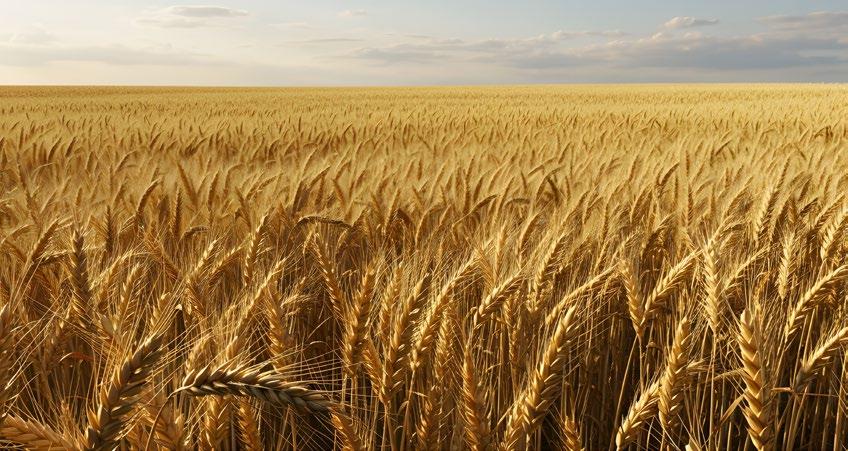
In addition, harvest delays in Russia, a key global wheat producer, could place added pressure on European supply, potentially increasing demand for other EUgrown crops in the months ahead which could cause prices to rise.
The global rice market is currently oversupplied, largely due to strong production levels in India, which is on course to become the world’s top producer. With a surplus in its domestic market, India has significantly increased exports, leading to intensified international competition and falling prices globally.
Key price movements at the time of writing yearon-year:
Indian rice: $ 13.5%
Thai rice: $ 25.8%
Vietnamese rice: $ 35%
Chinese rice: $ 17.8%
One emerging concern for future pricing and supply is the impact of Typhoon Wipha in July, which brought heavy wind, rain and flooding to China and Vietnam. The submersion of thousands of acres of rice fields in Vietnam may affect the availability of rice from these areas and therefore exports and the global market. The situation may lead to price volatility in the coming months, depending on the severity of the impact.
Coffee prices saw a sharp increase in 2024, driven primarily by severe drought conditions across major growing regions such as Brazil, Colombia, and Central America. Some areas received as little as 24% of their normal rainfall, leading to significant declines in both crop quality and yield. As a result, Arabica green coffee from Brazil is currently priced at £2.98 per kg, which is 25% higher year-on-year. Although this reflects a 30% decrease over the past quarter, the timing of importer contracts means
past quarter, the timing of importer contracts means many buyers may not experience immediate cost relief.
Looking ahead to the 2025/2026 season, the outlook is more positive, with increased rainfall expected to support improved harvests. However, as the region enters its colder winter months, there is growing concern that frost risk could still impact production and pricing.
The UK potato harvest for the 2025/2026 season is now well underway, benefitting from a dry spring that allowed farmers to begin groundwork significantly earlier than in previous years.
According to Defra, potato crops covered 118,000 hectares in 2024, with total UK production estimated at around 4.5 million tonnes. For 2025, land usage is expected to remain similar, but yields are forecast to improve, thanks to the more favourable weather conditions during the planting period. However, drought conditions in some areas, particularly those with limited irrigation access, could still impact crop size and quality.

Year-on-year comparisons are currently challenging, as the 2024 harvest had not progressed as far at this point in the season, but we can expect prices to be lower. As of now, the market price for white packing potatoes stands at £100 per metric tonne.
After reaching record highs in early 2024 due to extreme drought and elevated temperatures, olive oil prices have begun to fall and show signs of stabilising. Current raw material costs from Spain are £3.33 per kg, representing a 42% decrease year-onyear. This sharp drop is largely driven by a strong recovery in production, estimated at 1.4 million metric tonnes for the 2024/2025 season which is up by approximately 670,000 metric tonnes compared to the previous year.
In contrast, rapeseed oil prices have risen by 8% year-on-year, mainly due to prolonged dry weather in key growing regions such as Poland, France, and Germany. The drought has also disrupted logistics along major transport routes like the Rhine River. However, recent rainfall has offered some relief, raising hopes for improved
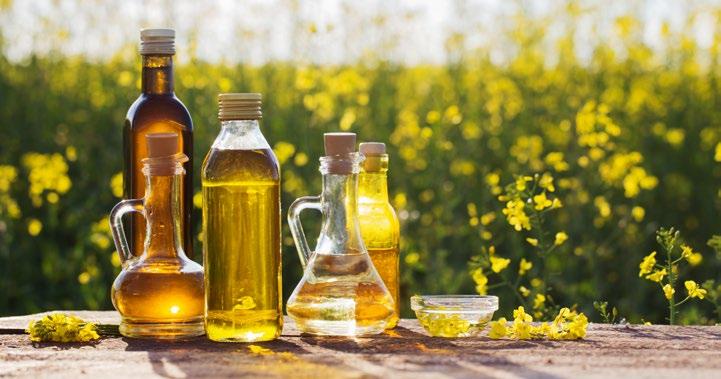
yields and crop quality. Sunflower oil prices remain volatile, currently 15% higher than this time last year. This instability is primarily driven by ongoing tensions in major producing countries, notably Ukraine and Russia. Additionally, low profit margins are causing some oilseed processors to shift toward more profitable crops, adding further uncertainty to both supply and pricing.
Deadweight beef prices reached record highs in April 2025 but have since declined by 8.9% over the past quarter. Despite this drop, the current price remains high at £6.50 per kg, representing a 32.5% increase compared to the same period last year. The primary factor behind this sustained price elevation is a tightening in cattle supply. According to Defra, total cattle and calf slaughter between January and April 2025 was 4% lower year-on-year, with prime cattle down 3% and cow slaughter down 5%. This decline is largely attributed to increased slaughter activity in the
previous year, as many farmers sought to generate cash to offset rising input costs by sending more cattle to market early. With input costs continuing to rise, many producers have chosen not to restock, resulting in a reduced number of animals available for slaughter and ongoing upward pressure on prices. Looking ahead, a rapid increase in domestic supply is unlikely. Cattle typically require 22–24 months to reach slaughter weight, limiting the speed of any supply response. Additionally, producer caution remains high, as there is concern that elevated prices could dampen consumer demand, making farmers hesitant to expand herd sizes in the short term.
UK deadweight lamb prices have increased by 13.4% year-on-year, largely driven by a reduction in breeding flock sizes. As of December 2024, the number of female breeding sheep in the UK was down 5%, contributing to a 1% decline in overall lamb numbers.
This tightening of domestic supply has placed upward pressure on prices. As a result, buyers are
increasingly turning to imported lamb to meet consumer price expectations, particularly from New Zealand. This shift in demand has contributed to a 35.5% increase in New Zealand deadweight lamb prices, highlighting the global ripple effect of the UK’s supply constraints.
UK pig deadweight prices have fallen by 0.9% yearon-year, primarily due to increased production volumes. The current deadweight price stands at £2.04 per kg. Output is projected to rise by 3.3% compared to last year, driven by larger herd sizes, a 2.6% increase in female breeding stock during the second half of 2025, and heavier carcass weights.
Despite the year-onyear decline, prices have increased by 0.92% over the past quarter. This recent upward movement is largely attributed to a rise in demand for British pork, following outbreaks of foot and mouth disease in parts of Europe, which has prompted European buyers to seek alternative sources of supply.
Chicken prices have risen by 11.8% year-on-year, driven primarily by the

ongoing impact of avian influenza, along with outbreaks of other diseases such as Newcastle Disease, particularly in key producing countries like Poland. The current European deadweight price stands at £2.59 per kg. In the UK, recent disease outbreaks resulted in a 5% reduction in the national flock, as strict biosecurity measures and zoning restrictions were implemented to contain the spread. These restrictions, many of which required poultry to be housed indoors, have since been lifted, allowing birds to return to outdoor rearing. While this change may support a modest recovery in flock numbers, ongoing cost pressures on producers could limit the pace and extent of a full rebound in supply, keeping upward pressure on prices in the near term.
Turkey prices are currently 28.6% higher than the same period last year. Domestic production has fallen by 23% as more UK
farmers transition away from turkey production. Supply issues across Europe, combined with ongoing disruption from avian influenza, continue to impact the wider poultry sector. With constrained availability and continued cost pressures, turkey prices are expected to remain high in the run-up to Christmas.
GB milk volumes are up 5% compared to the same quarter in 2024, helping to stabilise prices despite rising input costs for farmers and processors. However, underlying structural changes raise concerns for the future. As of 01 April 2025, the British Cattle Measurement Service reported the milking herd at 1.62 million head, a 0.9% year-on-year decline and the lowest April figure on record. This reduction is partly due to high beef prices, prompting early culling for cash flow, as well as the spread of bluetongue disease. The number of dairy producers in GB also continues to fall, with 190 producers (2.6%) exiting the industry as of April 2025. While current volumes remain strong, these trends suggest future cost and supply pressures may intensify.

Laura Taylor Senior Buyer

As we move into the final months of 2025, the start of the new school year provides a great opportunity to look back at the trends and innovations that have emerged over the past months, as well as getting a taste (pun intended) of how these may continue and develop over the remainder of the year. Back in January, allmanhall outlined some of the key trends that we were excited to see develop over the coming year. But of those launched, which are a flash in the pan, and which are most likely to continue into 2026?
Amongst the innovations we predicted for 2025, conscious eating stood out as both a stand-alone trend and as an under-pinning value to most new product development. Looking to make choices that are beneficial to both our planet and to their own individual health, consumers are seeking out products that support both. As a result, there has been an increase in options on the market that are low sugar or low fat, instead with added benefits such as high fibre or high protein.
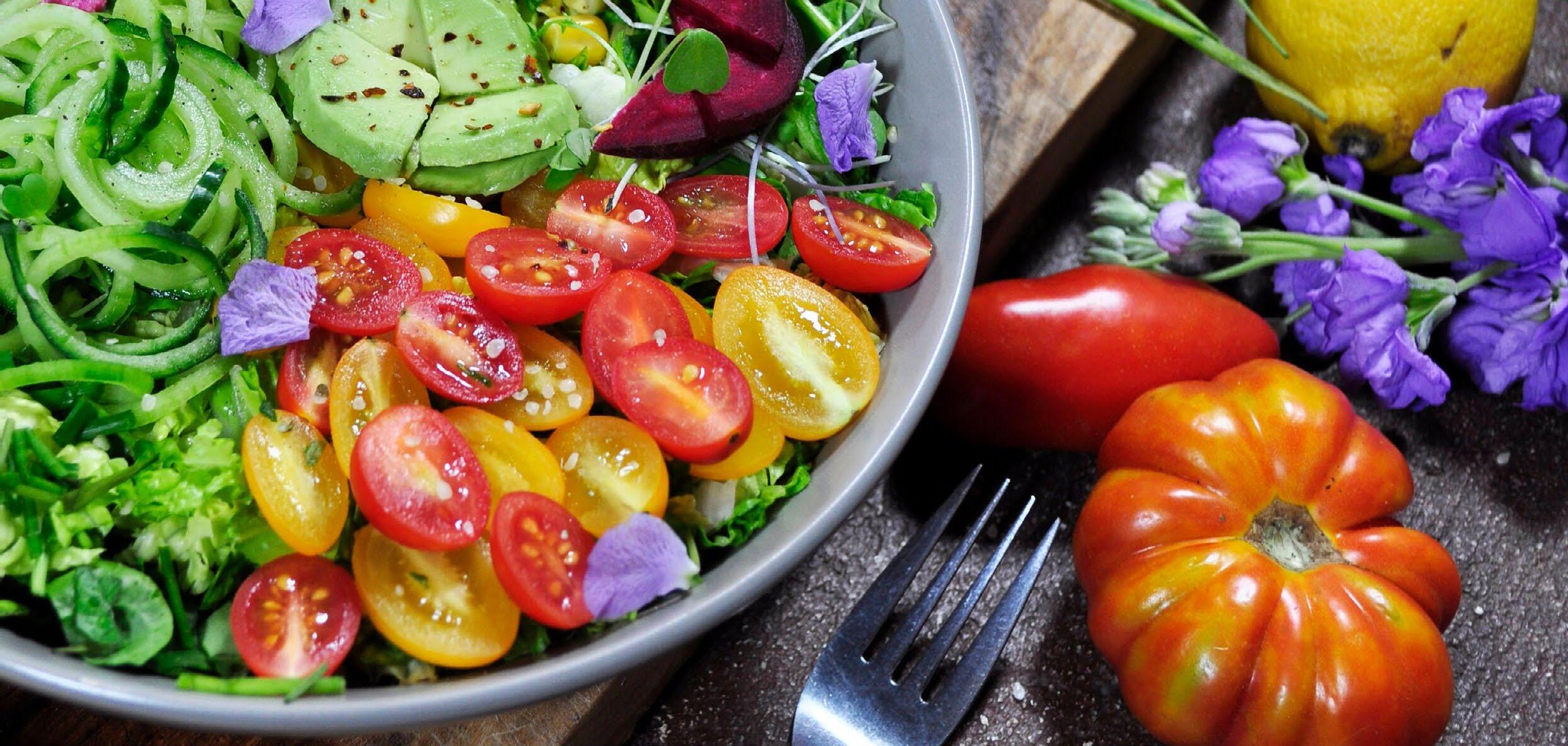
Whilst there has been a clear shift towards products and recipes that cut back on sugar and focus on more natural, less processed meals, one ingredient has really dominated the spotlight in the sweet treat world. The popularity of pistachio has exploded, found in everything from cakes, doughnuts, cookies, and pastries to the various takes on the now-famous ‘Dubai chocolate.’
Already a well-known and traditional flavour in Italy, pistachio gelato and, on the savoury side, focaccia sandwiches with pistachio crème, are being mirrored in the UK foodservice and retail markets. Whilst its presence has grown quite rapidly, it is likely that pistachio will stick around as a flavour and ingredient for a while.


Another more subtle trend that seems to have longevity within the food sector is that of ‘blended’ or ‘fusion’ desserts and cakes. Perhaps seen as taking inspiration from the cronut (a croissant-doughnut pastry hybrid invented and trademarked by French pastry chef Dominique Ansel in 2013), emerging products have been experimental in method, ingredients, and shape.
The croissant has been reinvented several times over, merging with waffles, muffins and cookies to get the croffle, cruffin and crookie. Sourdough doughnuts, baklava cheesecake and meringue-topped cakes and muffins are some of the non-croissant combinations seen, and this fun trend seems likely to develop even further as the bakery sector gets creative with new variations and combinations of our favourite classics.


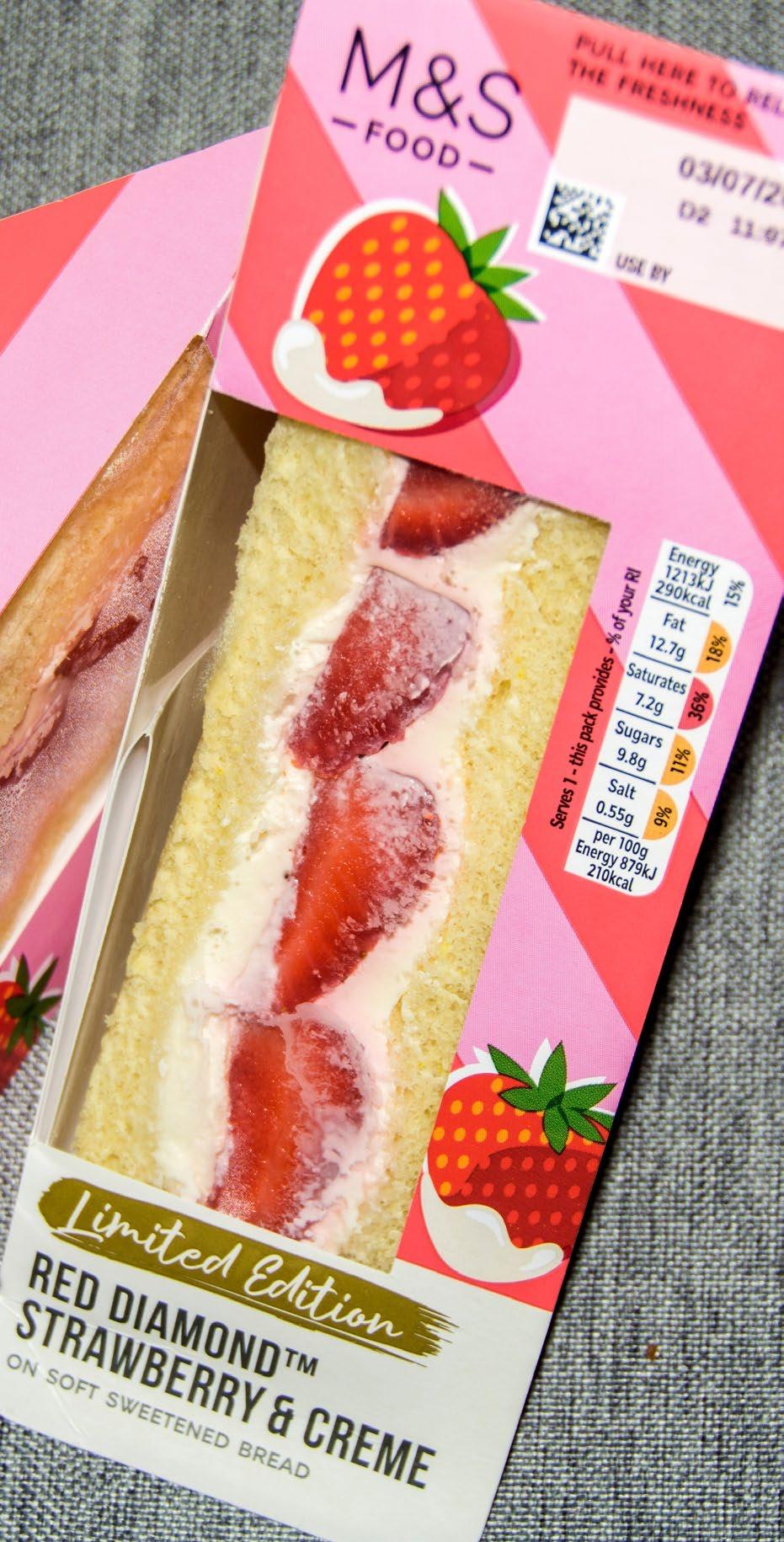
Street food that highlights the culinary favourites of global cuisines has been a continuous trend over the past couple of years. Popular choices include poke bowls originating from ancient Hawaii and influenced by Japanese cuisine, gyros and souvlaki from Greece, Korean fried chicken, and tacos and tostadas from Mexico, all of which can be adapted and used as inspiration to bring a variety of global flavours to menus.
However, one street food variation that the UK consumer may not have expected to see this year was M&S’s take on the Japanese fruit sando (or fruit sandwich), which consists of Japanese milk bread (known as Shokpan), filled with whipped cream and fruit such as mango, strawberry, and kiwi.
Launched in time for Wimbledon, the M&S strawberries and cream sandwich was a limitededition creation. However, on this occasion, it seems that tried and tested favourites such as Eton mess, trifle, strawberries and cream, and pavlova may retain their popularity over a more novelty innovation.
Whilst we see trends and innovation within the food sector that push culinary boundaries in a fun, experimental and creative way, there is a more serious and practical side that sees innovation not only in new product development, but also in the farming, production, policies and regulations that determine how our food system works.
Food is an essential and the UK food and drink sector alone employs over 4.2 million people, making it our largest manufacturing sector. It is no surprise that such a vast and complex provision comes with a huge array of challenges.
Announced by the UK Government on 15 July 2025, the Good Food Cycle is a framework aiming to transform our food system. The development of a forwardthinking food sector will ensure everyone has access to the means of healthier eating, provide a more resilient supply chain with stronger food security, and tackle climate change by supporting more sustainable food sourcing practices.
Of the Good Food Cycle, Minister for Food Security Daniel Zeichner, said:
“The Good Food Cycle represents a major milestone. We are actively defining the outcomes we want from our food system to deliver a whole system change that will help the amazing businesses that feed our nation to grow and thrive, which means more jobs and stronger local economies, while making it easier for families to eat and feel better.
This isn’t just about what’s on our plates today, it’s about building a stronger food system for generations to come, supporting economic growth, health and opportunity as part of our Plan for Change.”
In England, two-thirds of adults are currently overweight or obese, putting intense pressure on our NHS. And with almost one in five children facing food insecurity due to poverty, it is a priority that healthy food options are made accessible to all. By ensuring access to safe, affordable, healthy, convenient, and appealing food options, as well as supporting families to give them the knowledge and skills to cook and eat healthily, the Government hopes to give every child the best start in life.
allmanhall are proud to support our client partners, Forest Green Rovers, with their Community Cookalong events. These sessions offer local families the chance to come together to develop their cooking skills, creating tasty, balanced, affordable and sustainable meals suitable for the whole family. Focusing on plant-based ingredients that are both healthy and budget-friendly, the Cookalong events are a fun occasion, bringing the community together whilst promoting a more sustainable cooking and eating process.

Food and drink offer a market where innovation can be fun, creative, and experimental, pushing culinary boundaries to explore new flavours, ingredients, fusions, and recipes. It also offers growers, farmers, manufacturers, chefs, and food service providers the opportunity to address the critical risk of climate change and the impact our food sourcing and supply is having. Attracting and developing talent is key to the food sector to drive positive change. The Good Food Cycle aims to create conditions that allow the food sector to thrive and grow, investing in innovation and productivity and ensuring transparency and fairness across the supply chain.

With carbon emissions of less than 6% versus a regular beef burger, The Brighter Burger is a true example of an innovation that drives change and addresses the fight against climate change head on. Using ingredients and products that have come from sustainable farming and manufacturing practices, The Brighter Burger not only tastes great but has a low carbon footprint, tackles food waste, uses regenerative farming practices, is high in protein and is a great source of fibre. allmanhall collaborate with supply partners to drive positive change for our clients, working to bring innovations to your menus that promote healthy choices for both consumers and the planet. You can learn more about The Brighter Burger here.

The Good Food Cycle is about implementing a long-lasting framework that will benefit the to come. It is therefore essential that our food supply is resilient, mitigating supply risk and consistent food security, particularly in light of climate change. To allow this, we must account prepare for supply chain disruptions, reducing the impacts of these and ensuring a supply resistant to the challenges within the supply chain. As part of this, it is essential that the we have in place promote sustainable processes, working together to reduce the carbon food supply. Maintaining high animal welfare standards and actively reducing waste, the upholds British standards to ensure that we have a food supply that is healthy for ourselves The impacts of climate change on our home-grown food supply have become even more the heatwaves experienced in the UK over the past months are having a considerable impact yields of our crops. Five areas of the UK have been officially declared as being in drought, more at risk due to the prolonged dry weather. Effects can be seen on brassicas such as cauliflower which do not cope well with the high temperatures. Lower quality and lower yields tighter supply, with imported goods supporting the reduced UK crop and causing prices to

With a focus on building a more resilient food supply chain, we have the opportunity to celebrate our UK, regional and local food cultures. As consumers are looking to make more conscious choices, transparency of the local food systems gives them the knowledge and power to make informed decisions, allowing people to eat healthily. Mindful eating not only accounts for what they are choosing, but also where it has been sourced from, the practices used and the impact of those on the environment.
Whilst food trends and innovations bring us exciting and sometimes controversial products to the market, these are developed by teams constantly striving to create a better food supply and drive change within it. Food is emotive, creative, and enjoyable but ultimately it is essential. And it is the overarching movement of safeguarding our food supply and safeguarding our planet that is the driving force behind the innovations we will see over the coming months and years.
the generations and offering account and supply that is the supply chains impact of our framework and our planet. apparent, as impact on the drought, with six broccoli and yields result in a to increase.


If you missed any blogs, find them here...
The summer holidays may already feel like a distant memory but nothing evokes the British summer more than ice cream. As we move into the Autumn, and a new academic year, we keep those memories alive with the history of ice cream and its environmental credentials.


Sticking with an environmental theme, Earth Overshoot Day marks the day when humans have symbolically used up the volume of ecological resources that the Earth can generate in a single year. allmanhall’s Sustainability Manager, Richard Dowling, explains it all.
Food production is entirely dependent on the Earth’s resources or ecosystem services - the direct and indirect benefits that nature and biodiversity provide to humans. Richard demonstrates what ecosystem services mean for food security.


Food security is intrinsically linked to the impact of climate change. If you want to minimise your kitchen’s carbon footprint, allmanhall suggest simple ways to reduce the planetary impact of your meals - swapping just a few ingredients can make a big difference and help your budget.
Talking of budgets, food inflation currently sits at 4.9% and could rise to 6% by the end of this year. Whilst the supply chain is still volatile, there are things you can do to make your food spend go further and improve sustainability.
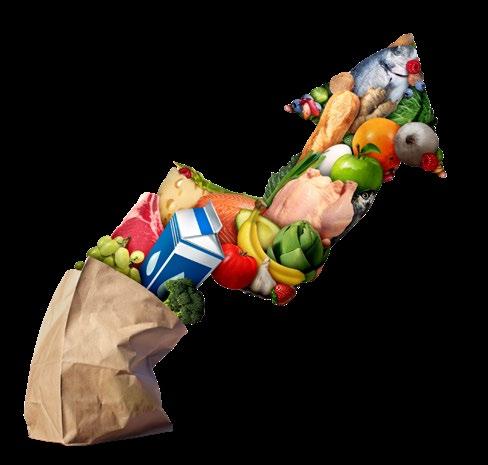
The food sector in the UK has been beset by rising egg prices since the start of the year, primarily caused by the impact of avian influenza, but you can reduce your ingredient costs by replacing eggs with a simple tin of chickpeas in certain recipes, using the liquid that you’d throw away.

Talking of waste, plastic pollution is a worsening global problem. As it’s a key challenge facing the food industry, and to mark Plastic Free July, allmanhall highlight the simple yet effective steps catering teams can take to plastic waste.

Looking at the education sector specifically, changes to Government standards now mean that preschool & nursery settings follow new nutritional guidelines for young children - our Registered Dietitian, Tess Warnes explores what this means for catering teams.
Research indicates that teenage girls don’t often eat the vital nutrients they need for good health. Tess explains the importance of sustainable nutrition for girls and young women as their requirements are very different from their male counterparts.
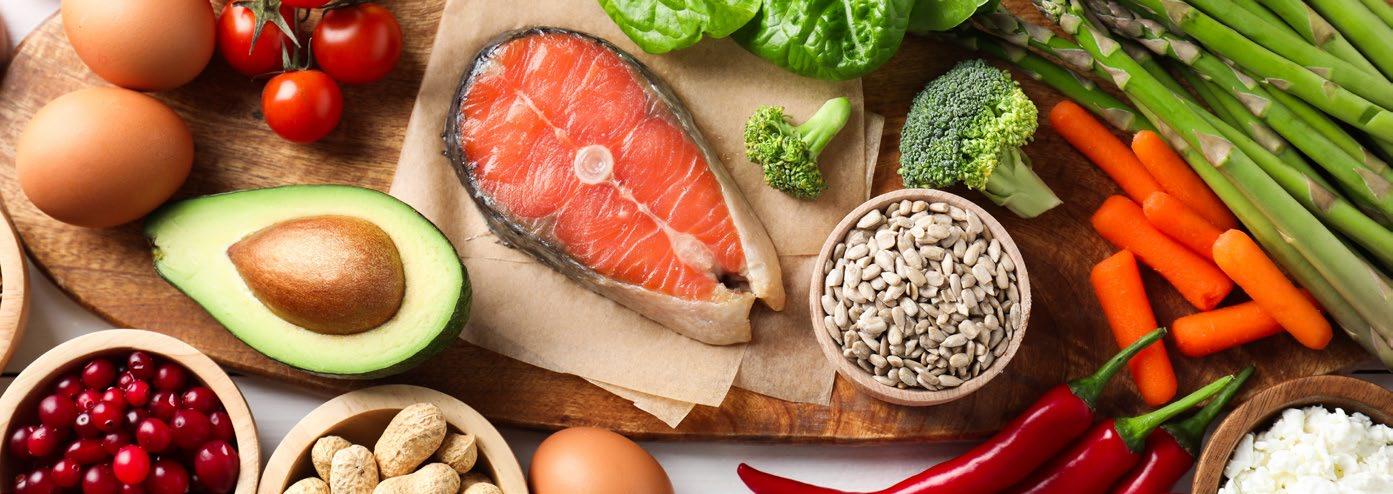
Helping to feed boys as well as girls, Tess demonstrates how, whilst they are on school premises, you can improve children’s attendance and attainment without breaking your budget - just by providing them with a healthy breakfast full of wholegrains and other key nutrients.
Wholegrains encourage good digestive health which is

When catering for schools, with specific dietary needs, Authorised Buying Lists (ABLs) are sometimes used as a tool to guide purchasing decisions – but they must be used wisely.
An Authorised (or sometimes called ‘Approved’) Buying List - or ABL - is a preapproved list of food items that a client or catering organisation agrees to purchase from a supplier. These lists are typically put in place to meet specific dietary, religious, or ethical requirements.
Examples include:
• Allergen control – e.g. only nut-free products
• Religious requirements – e.g. halal-certified items only
• Accreditations or ethical sourcing – e.g. Food for Life standards requiring free-range eggs or higher-welfare meat
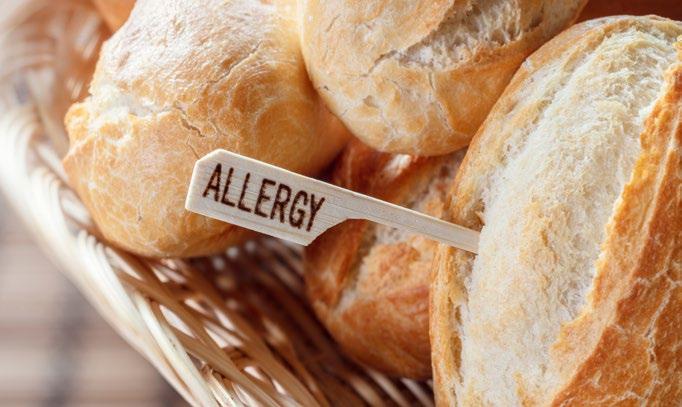
Many schools choose to implement ABLs to:
• Add an extra layer of food safety by reducing the risk of ordering inappropriate products
• Support compliance with school policies, accreditations, or standards
• Simplify procurement by narrowing down choices to known and approved items.
While ABLs can support food safety and compliance, there are some important limitations to be aware of:
• Supplier restrictions – ABLs are typically only supported by larger suppliers like Bidfood. If you use multiple suppliers, only the primary one may enforce the ABL.
• Out-of-ABL purchases –staff may need to buy items from local shops or smaller vendors who aren’t bound by the ABL, introducing the risk of allergens or noncompliant products.
• False sense of security – relying solely on an ABL can lead to complacency. Staff may assume all items are safe and stop checking labels thoroughly.
According to Allergy UK and Anaphylaxis UK, blanket bans on specific allergens (e.g. nuts) are not recommended. Here’s why:
• There are many allergens to consider, not just nuts
• No kitchen can guarantee a 100% allergen-free environment
• A ‘free-from’ policy can create a false sense of security and reduce vigilance.
Instead, these organisations promote a culture of:
• Allergy awareness
• Staff education
• Whole-team responsibility.
This approach is especially important in settings like schools, where a collaborative and informed team is key to keeping children safe.
Training and support is available
allmanhall can provide allergen training workshops for you and your catering/foodservice team, to help your management of allergens. All workshops are carried
out by our Registered Dietitian who will tailor the session to your needs, ensuring your staff come away with critical knowledge and practical learning about the 14 major food allergens, including how to deal with the different types of reactions and helping to ensure your food service operation is fully compliant. Accredited training can also be provided through the completion of the Royal Society of Public Health’s Level 2 Award in
Identifying and Controlling Food Allergy Risk.
Authorised Buying Lists can be a helpful way to support dietary needs, uphold standards, and streamline purchasing - but they are not a onesize-fits-all solution. They should complement, not replace, robust allergen management procedures and a culture of continuous awareness and staff training.

ABLs do not replace allergen procedures
• ABL or no, allergen safety procedures must always be followed
• Ingredient labels and allergen information should be checked every time a product is delivered or opened
• Product specifications and recipes can change without notice, and even familiar items may contain unexpected allergens
• ABLs should be viewed as a support tool - not a substitute - for proper allergen management.
It’s so important to
always check labels and packets for allergens

Email hello@ allmanhall.co.uk for details
allmanhall’s Registered Dietitian, Tess Warnes, will be giving a number of complimentary webinars in partnership with BSA/HEIDA for the forthcoming academic year. This term, Tess will focus on…
09 October:
Sports nutrition 14:00 – 15:00
05 November:
Allergen management 10:00 – 11:00



allmanhall provide independent schools with expert allergen management support, including tailored training from our Registered Dietitian, practical guidance on legal compliance, and best-practice procedures for safe foodservice, ensuring confident, compliant allergen handling every day.


“allmanhall’s training was incredibly helpful, interactive and engaging. We have made a number of changes since Tess’s visit, including implementing an allergen checklist matrix…
Whilst we already had a good system in place, this adds an additional level of safety and traceability to each dish.”
Linda Thomas, Catering & Functions Manager
Read the full case study here.
Prepatory School: 10 portions | Senior School: 7 portions
Prep time: 10 mins
Cook time: 35 mins
Total time: 45 mins
Ingredients:
• 800g sweet potato
• 10/14 vegan sausages*
• 1 red pepper
• 2 courgettes
• 1 granny smith apple
• 1 red onion
• 1 garlic clove
• 3 tbsp honey
• 2 tbsp chopped rosemary
• 1 tbsp thyme
• 1 tsp black pepper
• 1 tsp olive oil
*1 sausage per primary portion / 2 sausages per secondary portion
Method:
1. Preheat the oven to 170°c.
2. Peel and cube the sweet potato, red onion, red pepper and place them in an oven dish.
3. Coat the ingredients with oil, chopped herbs, black pepper and crushed garlic then place in the oven for 15 minutes.
4. Cube the courgette and set aside along with the peeled and cubed apple.
5. After the potato has been cooking for 15 minutes, remove from the oven and add the courgette, apple and honey. Return to the oven for a further 20 minutes.
6. Place the sausages in the oven in a seperate dish for 12-16 minutes.
7. Serve the sausages with the roasted potato dish and garnish.
You can make this recipe vegan-friendly by removing the honey.


Overview
Since January 2023, when a procurement partnership was formed with Warwick Schools Foundation, allmanhall have continued to deliver award-winning procurement support to the Foundation’s independent schools.

In October 2024, the senior operational management team engaged allmanhall to explore how additional support through their expert consultancy could deliver a full review of catering operations across the Schools.

allmanhall identified potential savings of over £30,000 that could be achieved by moving one element of outsourced food preparation to in-house preparation. Further savings could be made by adopting recommendations which reduced labour requirements for administrative tasks.
“Chris truly understood why we required a full review of our catering operation, which is evident by the depth of information within the report we received. While Chris was onsite, he was respectful to the team which allowed for honest and open conversations. The recommendations we received have allowed us to create a short-, medium- and long-term plan to enable us to develop and increase savings throughout the catering department.”
Claire Yates, Foundation Director of Hospitality & Leisure
Background
Warwick Schools Foundation consists of Warwick Preparatory School, King’s High School, Warwick Junior School, Warwick Senior School and The Kingsley School. The Schools are individual but benefit from the strength and support of the Foundation. The Schools are located on two sites, with the main site being the 55-acre Warwick Campus in Warwick, home to some 2,600 pupils of Warwick School, Warwick Preparatory School and King’s High School. Royal Leamington Spa is home to The Kingsley School.

At the time of the review over 3000 meals were being served during each lunch service across the Foundation. In addition to this, over 80 students boarding at the Schools also required breakfast, dinner and additional boarding provisions.
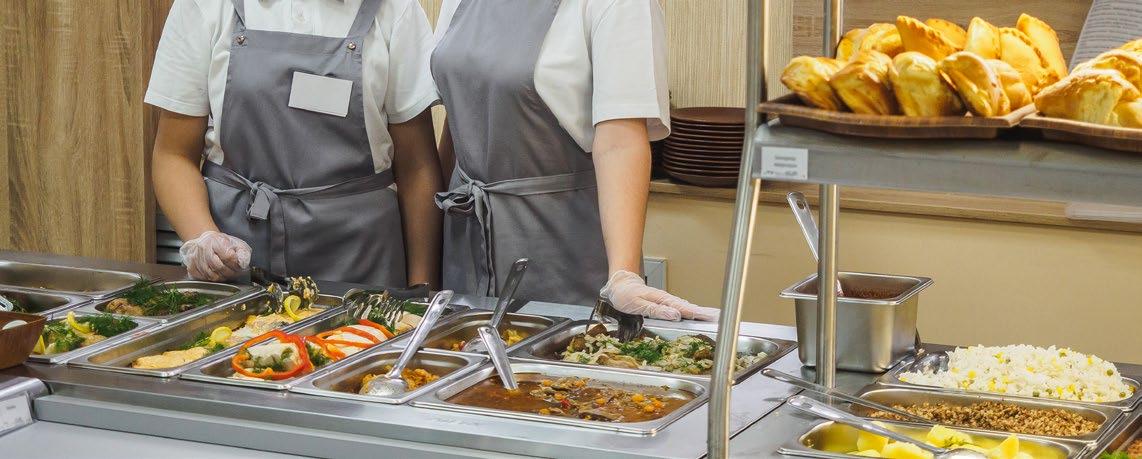

The Foundation required a competent catering consultant to deliver comprehensive insight as well as recommendations to create an action plan to develop the service whilst ensuring that the review would be undertaken sensitively to enable their catering teams to feel valued throughout the process. The Foundation wanted to identify potential improvements in the catering operation’s efficiency, as well as ensure best value for money being achieved across the School.
The Foundation was keen to ensure they had the correct management structure in place for the catering operation, so that the catering teams could reach their full potential, delivering the highest quality of service across the Schools.
allmanhall’s Development & Consultancy Manager, Chris Webster, undertook the review in November 2024. Chris spent over 36 hours on site over four days to observe the catering teams during preparation, cooking and service. Consultation with the department’s key stakeholders was also undertaken in 15 separate one-toone meetings.
allmanhall’s in-depth catering consultancy review report included an Executive Summary detailing key findings along with recommendations. The summary included enough detail to share with the Foundation’s senior stakeholders who wanted just the headlines.
allmanhall made 38 recommendations using our expert knowledge of the sector, which took into consideration the Foundation’s aims.
The Foundation was impressed with the level of detail and insight provided, and they felt confident to move forward with the recommendations made by allmanhall, knowing the expertise and skills set of their consultant and that their own service had been benchmarked against similar independent schools.

No cost, just food cost savings when your schools need it most.

Food supply factors and increases in the cost to serve are adding to already pressurised school budgets.
Food inflation is expected to surge to 6% by the end of the year, posing a significant challenge for catering budgets over the coming months.
A bleak outlook is emerging from the latest British Retail Consortium survey, with 85% of retailers reporting having raised prices in response to rising costs driven by the previous budget’s increase in employer National Insurance and the National Living Wage.
With current food inflation having risen to 5.1% in August, according to the most recent CPI figures, and the ongoing challenge of VAT having been added to independent school fees, you may be finding that your food budget is being increasingly squeezed.
Food procurement expert allmanhall’s Managing Director and co-owner, Oliver Hall, says: “Based on recent and forecasted inflation spikes, schools may want to revisit what they have budgeted for annual food inflation for the new academic year. allmanhall consistently outperform inflation with price rises lower than inflationary rates, ensuring every pound of catering spend goes as far as possible”.
Global factors are at play with extreme weather influencing crop production, threatening food supply, and increasing food prices.
This is compounded by the aforementioned increase to both the National Minimum Wage and employer National Insurance Contributions impacting labour costs, particularly in those sectors heavily reliant on lower wage workers, such as catering. Thinking of outsourcing your catering operation to avoid this? Pause before you add a management fee on top of rising labour costs on someone else’s payroll.

Food production and supply are also impacted and allmanhall are working with suppliers to mitigate cost to serve price increases and the extent to which these are passed on to schools. Expert negotiation delivered by an organisation with circa £60million annual purchase volume. That’s a lot of food and a great deal of buying power. The results are being enjoyed by allmanhall’s many independent school client partners as substantial food cost savings.
“In partnership with our excellent in-house catering team, allmanhall helps us provide fresh, nutritious and tasty food of a high quality and with a persistent focus on sustainability and value for money.”
Neil Cufley, Director of Operations & Finance, Royal Russell School

Head of Catering at ACS International Schools, Chris Ingram adds: “We regard allmanhall as absolute experts in their field, delivering the best food at the best prices along with the best support... They are a truly essential service – not an overhead at all but a critical partner without whom we could not achieve the support or savings we see today.”
The changing landscape of food supply and inflationary pressures is compounding a very real need for expert food supply chain management on behalf of independent education organisations across the UK, as an extension to their teams and catering operations.
As Oliver Hall explains; “The effects of Government policy will likely be felt in the form of higher food prices in the coming years... choices made today will play a pivotal role in shaping the future of food security.”
Tracking and managing every penny of spend, shining a light on improvements, mitigating price increases and managing suppliers whilst leaving you in control... allmanhall will make your food budget go further through a model that delivers sustainable and responsible food procurement.
After all, good food shouldn’t cost the Earth!


The UK is one of the most nature-depleted countries in the world, with nearly one in six wildlife species facing extinction. For food service professionals and organisations, biodiversity loss is not a distant environmental issue – it affects food quality, supply chains, and long-term sustainability. That’s why understanding the UK’s biodiversity crisis matters to catering and foodservice decision-makers.

Why UK biodiversity loss matters to you:
• 1 in 6 UK species faces extinction
• Biodiversity loss threatens food supply and price stability
• UK farmland takes up 69% of land - how it’s managed matters
• Sustainable sourcing can help reverse the trend
Richard Dowling, allmanhall’s Sustainability Manager, explains and provides guidance about things you can be doing…
Why UK biodiversity is under threat
In 2023, the State of Nature Partnership produced a report highlighting the alarming circumstances of the UK’s biodiversity levels.
The partnership consists of over 60 different organisations, ranging from conservation NGOs, statutory nature conservation bodies, and research institutes, meaning that the report’s data are considered to be some of the most robust in biodiversity reporting.
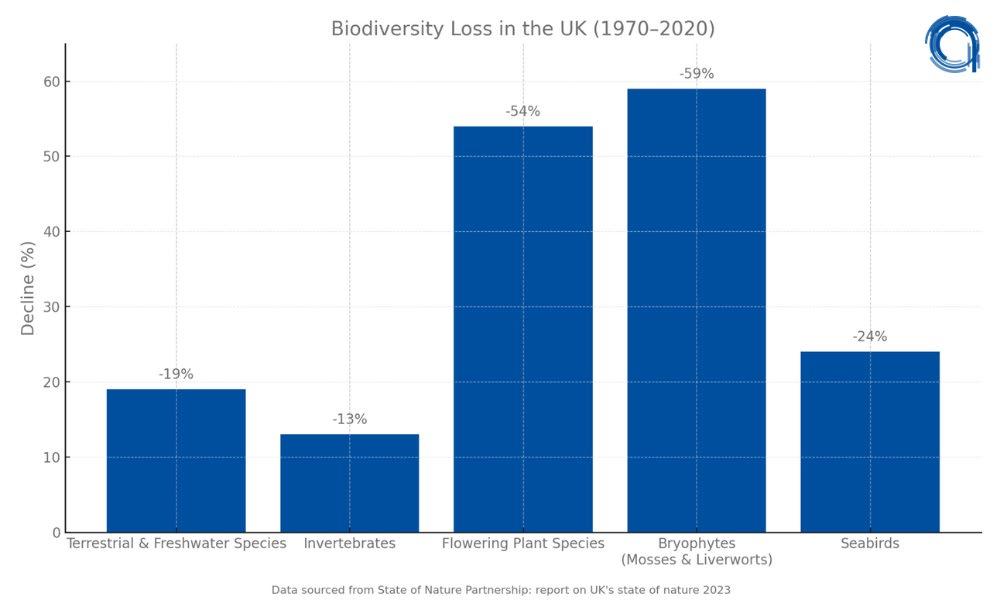
Their key findings were that:
• UK wildlife species have declined by 19% since 1970 (for example, hedgehog numbers have declined by up to 30% in urban areas and 50% in rural areas since 2000).
• One in six species is threatened with extinction, including hazel dormice, puffins, marsh fritillary butterflies and great crested newts.

• 151 species have become extinct, such as the horned dung beetle (1974).
The data from the report cover the last 50 years, but this follows on from centuries of development, land-use change, habitat loss, and persecution, all of which have contributed to biodiversity depletion. As an advanced economy with the sixth-largest GDP in the world, factors such as urban development, overfishing, pollution, and climate change are particularly relevant.
Over many decades, UK farming has helped ensure a stable food supply despite significant challenges, but this has come at the cost of excessive land use.
Farmland covers around 69% of the UK. But despite appearances, many of these landscapes are far from naturalthey’ve been shaped by decades of intensive farming.
As previously explored by allmanhall, modern industrial farming prioritises consistency and output, relying on intensive monocultures, heavy pesticide use, as well as beef and lamb production, all of which harm wildlife and ecosystem service provision.
In fact, research has shown that around 40% of the UK’s most productive land is used to grow food for livestock. This is not necessarily the most efficient use of land that could otherwise be used to grow crops for human consumption and also provide benefits to nature and the climate.

As a result of all of this, the UK has on average about half of its biodiversity left, meaning the country is in the bottom 10% of countries worldwide.
This contrasts with other countries such as Canada and Finland, who still have around 90% of their original biodiversity intact.
Given that the Industrial Revolution accelerated environmental damage and biodiversity loss globally, the UK has a unique responsibility to set a more positive example this century.
It’s in our interests to do so, given that protecting biodiversity is a prerequisite to long-term food security.
There are some signs of progress. In addition to long-standing legislation such as the Wildlife and Countryside Act 1981, the Environment Act 2021 (which includes the Biodiversity Gain (Town and Country Planning) 2024 Regulations) aims to boost biodiversity.


Through section 106 agreements, developers are required to deliver a biodiversity net gain of 10% on development sites, through creating or enhancing specific habitats.
If this isn’t possible onsite, the legislation allows developers to carry out measures somewhere suitable offsite, or as a last resort, to pay the government expensive statutory biodiversity credits.
However, the legislation has received criticism. The Wildlife Trusts and the RSPB have questioned the efficacy of developers paying into a ‘central nature fund’, given the fact that the biodiversity from habitats such as ancient woodlands and chalk streams cannot be offset.
This is why developmentfree zones are necessary in some cases. Ultimately, the UK’s failure to build enough homes is a serious problem, but protecting nature isn’t a hindrance to remedying it. With smart planning, both goals can be met.
The UK also has a responsibility to protect the environment beyond Great Britain and Northern Ireland, with the UK’s three Crown Dependencies and 14 Overseas Territories boasting a wide array of ecosystems. These are home to around 1,500 endemic species, which is considerably more than the UK itself!
Encouragingly, many have aligned themselves with the international Convention on Biological Diversity, while the new government has also committed to the 30by30 goal. This entails protecting 30% of our land and ocean by 2030, in line with global targets set at COP 15.
International agreements to protect biodiversity are important, seeing as it isn’t something that can be resolved without co-operation.

This is also the case with climate change, and research is displaying how we’re in danger of reaching irreversible ecosystem tipping points. Although problems such as ocean exploitation and deforestation can be considered as biodiversity issues, failing to deal with them will also have serious impacts on the climate and global economy.
Dealing with these issues separately won’t work, and preserving key habitats will help us ensure global food security and fight climate change.
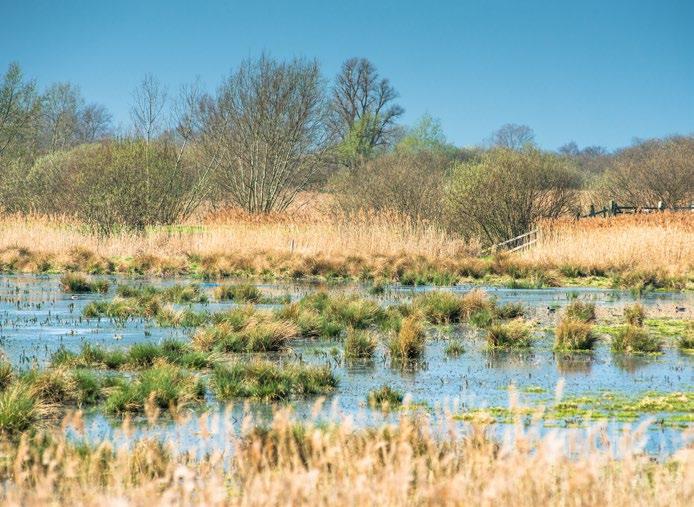
This is largely because many key habitats serve as carbon sinks. When greenhouse gases are released, around half remain in the atmosphere, while the other half are absorbed by land and the ocean.
This is why nature-based solutions are often put forward as an important part of fighting climate change, as mangroves, peatlands, wetlands, and forests all sequester carbon.
To protect UK biodiversity effectively, we also need to rethink economics and policy, given the economy’s dependence on nature. Some of the solutions include:
• Progressive tax reform that discourages environmentally harmful practices
• Further subsidies that reward sustainable farming and restoration
• Payments for ecosystem services (compensating landowners for protecting pollinators or carbon storage, for example)
• More investment in regenerative agriculture and restoration projects
• Incorporating environmental metrics into economic decisionmaking
What can you do to make a difference to biodiversity?
Although systemic change is necessary, our individual consumption choices all make a difference.
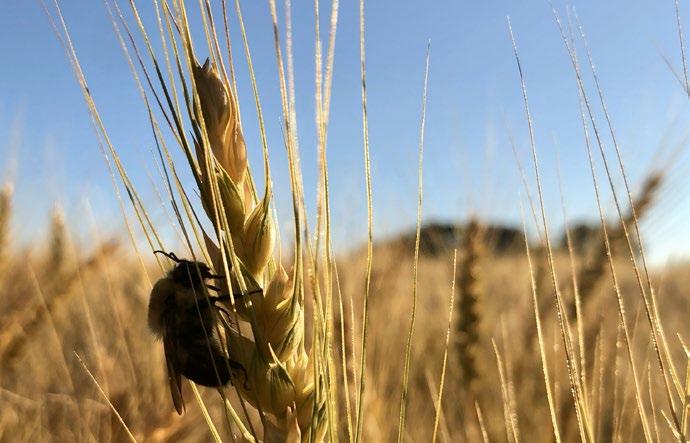
Here are a few ways to reduce your environmental footprint when it comes to food:
• Eat less meat and dairy
• Conserve water and energy and consider this in the production of food
• Choose products with lower carbon and ecological footprints
Partnering with allmanhall gives our clients access to sustainable ingredients produced by some of the country’s most innovative regenerative farmers.
Wildfarmed is one of the UK’s leading voices in the move towards regenerative agriculture, and they provide the flour for the bun on allmanhall’s Brighter Burger.
Cutting out pesticides and growing flowering companion crops instead of leaving the earth bare means creating the perfect environment for pollinators like bees and butterflies which in turn encourages more healthy plant growth.
Biodiversity isn’t a luxury; it’s essential for our health, economy, climate, and food.
As the birthplace of the Industrial Revolution, the UK has played a major role in today’s environmental challenges. We now have the responsibility to lead the way in restoring nature.
As an EcoVadis Goldrated food procurement company, allmanhall is well-placed to help organisations align with legislation and sustainability goals that reduce your ecological footprint at an organisational level.
Our sustainability team can offer guidance on ingredient sourcing with our sustainability dashboards, menu planning with The Brighter Burger and our plant-based Hero Recipes, as well as food waste reduction. All of this goes a long way towards helping to reduce your ecological footprint.
Keen to reduce your biodiversity impact?
Contact us to explore how allmanhall’s solutionsfrom sourcing to waste reduction - can support your goals. We’re transforming food supply and providing insight and transparency to help inform decision making.


Shifting towards regenerative farming is a powerful way to enhance biodiversity. Why? Put simply, regenerative farming farms with nature, not against it, to leave the land better not worse.
There isn’t a precisely defined term but it generally refers to agricultural practices that boost biodiversity, rebuild soil fertility, enhance water management, and sequester carbon, with the aim of sustaining agricultural productivity and regenerating degraded landscapes. That means covering the soil year-round, growing cash crops alongside companion plants and planting a mix of crops between harvests.
As part of allmanhall’s mission to deliver sustainable value to our clients, we work with inspirational regenerative farmers to develop ingredients that improve biodiversity. One of our innovative food partners is Wildfarmed.
Wildfarmed, a food and farming business started by Andy Cato, Edd Lees and George Lamb in 2019, grows wheat regeneratively to make flour and pasta that doesn’t just taste great but is better for nutrition and for the health of the planet.
Their regenerative farm in Wiltshire:
9 removes carbon from the soil - 2.8kg less of co2 in the atmosphere per 1k.g of Wildfarmed regenerative flour as compared to 1kg of conventional flour
9 uses no pesticides
9 minimises river pollution
9 boosts biodiversity – 500% increase in invertebrates in Wildfarmed fields
9 promotes farmer welfare
9 delivers a fully transparent supply chain
We featured an in-depth interview with Wildfarmed in last Autumn’s issue of Foodsight and followed it up recently with a visit to their farm, when allmanhall’s Sustainability Manager Richard Dowling and Marketing Manager Tom Ferris joined industry peers to dive deeper into the vital world of regenerative farming.
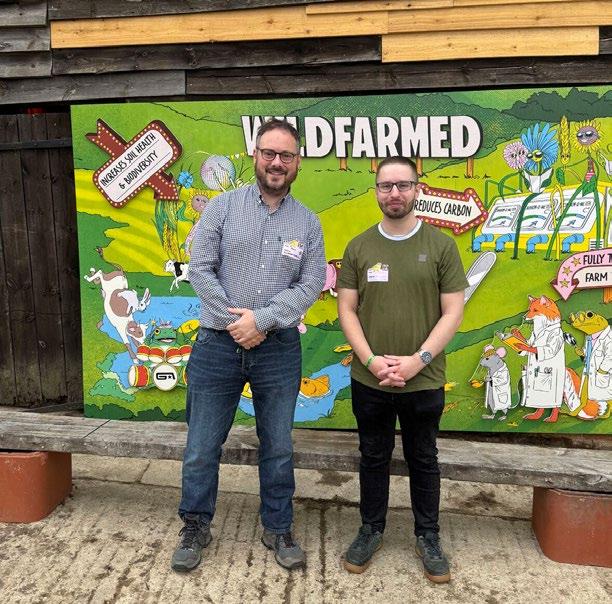
It was a day full of insights, ideas, and real enthusiasm for building a better food system.

Want to see this mission in action?
Richard and Tom left energised (and slightly muddy) with even more respect for the work Wildfarmed is doing to restore soil health and transform farming from the ground up.
The Brighter Burger –specially designed with schools in mind features a Wildfarmed vegan-glazed bun – a small but mighty step toward a more sustainable plate.

The Brighter Burger patty is now 50% off!
This offer is only available while stocks last, with delivery available from Bidfood up until 27 October 2025.
Order via Bidfood Direct before 27 October - code 22781.




The Brighter Burger patty is now 50% OFF!
This offer is only available, while stocks last, until 27th October.

Order the burger patty (product code 22781
Redefined patty 48 x 100g now via Bidfood Direct
• Incredible taste
• Low carbon footprint
• Reduced emissions
• Tackles food waste
• Regenerative farming
• High in protein
• Source of fibre
Emits 0.34kg CO2e compared to 5.77kg CO2e in a standard beef burger.
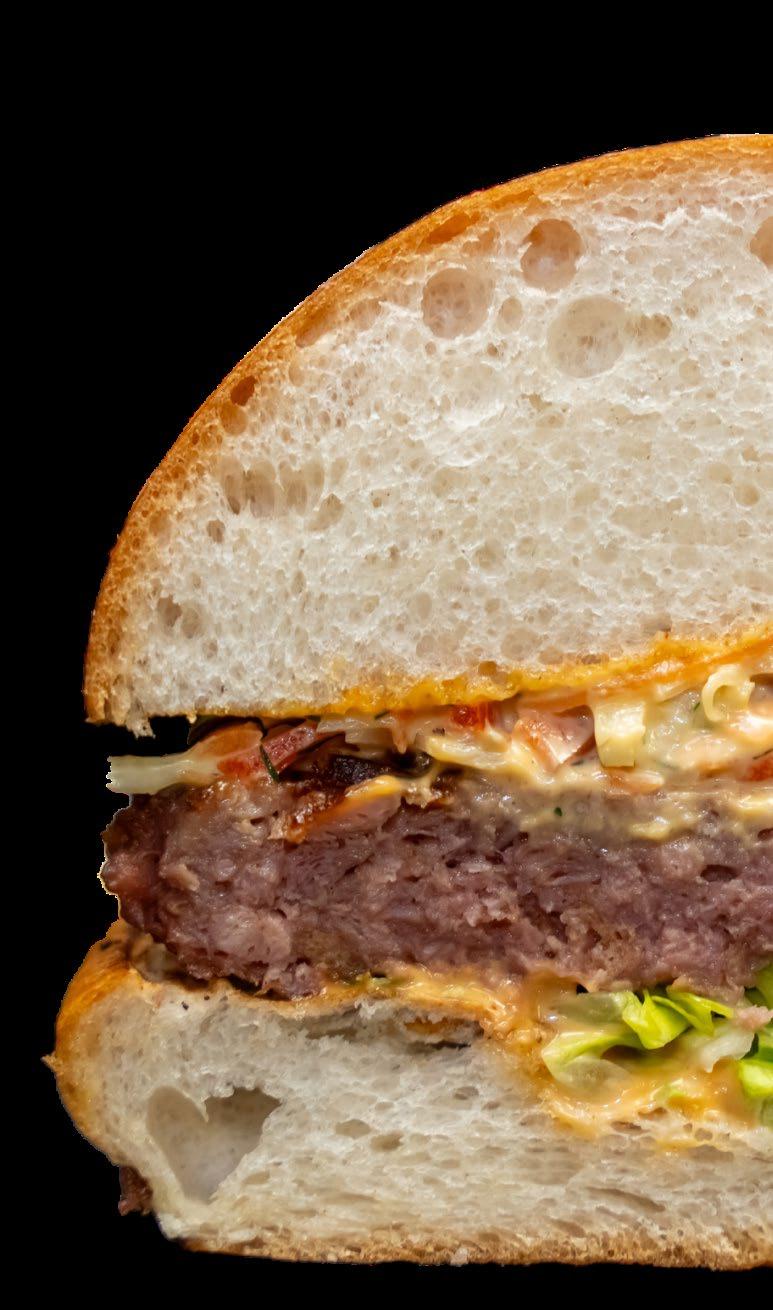

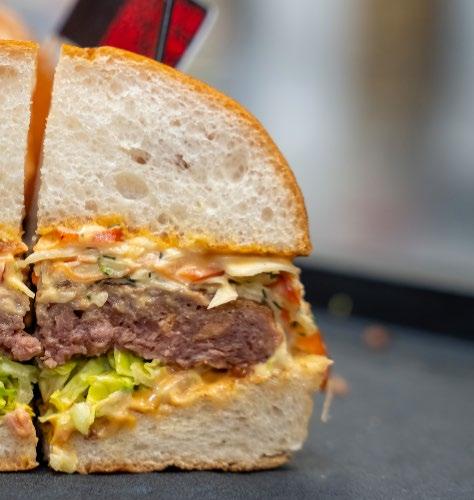

Available via Bidfood Direct or Telesales

Product codes and pack sizes:
22781 Redefined burger 48 x 100g
23907 Wildfarmed vegan glazed bun 1 x 60
22482 Applewood vegan cheese slice 12 x 200g 15283 Rubies tomato ketchup 3 x 5LTR
6% emissions of a standard beef burger and comparable cost! This has also been reviewed by our Registered Dietitian, who was impressed with the protein and fibre content.
Ask us about a demo: hello@allmanhall.co.uk


If you have a LinkedIn account, be sure to follow @allmanhall for the latest market updates, industry news, foodie insights, sustainability guidance, recipe inspiration, and much more!



As well as sharing insights and updates, we regularly collaborate with partners including Foodsteps, UN Global Compact and Jamie’s Farm.
You will also get to see behind-the-scenes photos of our team and what we get up to!


Add up to 5 recipes or food items for FREE and see the carbon impact data...
Foodsteps is so easy to use and great for communicating and understanding carbon impact assessments of your food.
Together, you and your students can make a difference.



If you like what you see, simply ask allmanhall for advice about the best option for you and how to access competitive rates.




As someone responsible for food procurement, budgets and catering spend, you’re likely to be navigating increasingly ambitious ESG (Environmental, Social, and Governance) goals. These commitments are shaping everything from how food is sourced to how sustainability is communicated to your stakeholders.
Transparency in the food supply chain is central to achieving those goals.
From carbon emissions and ethical sourcing to the responsible use of antibiotics and accurate reporting, a transparent supply chain allows you to meet compliance standards, reduce risk, and demonstrate accountabilitywhile continuing to meet the dietary needs and expectations of your diners.
Specialists in sustainable food procurement, allmanhall, explain what this means for you.
Food supply chains are complex. Ingredients often pass through multiple intermediaries, and visibility into origin, handling, and environmental impact can be limited. Yet transparency is no longer a luxury - it’s a regulatory and reputational requirement.
A transparent food supply chain provides:
• Clear data on provenance and sourcing
• Evidence of ethical and sustainable practices
• Traceability for allergens, welfare standards, and certifications
• Carbon impact data for menu items and ingredients
As ESG requirements continue to evolve, so too does the need for procurement systems that can capture and report on these areas reliably.

Public awareness around issues like antibiotic resistance and animal welfare continues to grow. Ensuring food safety and ethical sourcing is not only a regulatory concern but a matter of public trust.
In the UK, the routine use of antibiotics in livestock feed has been banned since 2006. Today, antibiotics may still be used, but only under strict veterinary supervision, and only when medically necessary. Withdrawal periods are enforced to ensure no traces remain before the animal enters the food chain.
New legislation in May 2024 banned the routine use of antibiotics in farming for growth promotion or to compensate for poor animal welfare and hygiene. This approach is supported by organisations such as the Responsible Use of Medicines in Agriculture Alliance (RUMA) and is one of many areas where standards like Red Tractor certification can provide assurance.
Red Tractor requires regular audits, documented medicine use, and compliance with animal welfare and food safety standards – giving caterers added reassurance about your food supply chain.
allmanhall explored the issue of welfare in a recent blog about the egg industry, which is moving towards higher welfare barn-reared and free range egg production, albeit slower than originally planned due to the impact of avian influenza.
For your organisation, using accredited suppliers and recognised certifications ensures your sourcing decisions align with ESG expectations, while safeguarding all your diners.
Reducing environmental impact is a core component of ESG. One of the most effective ways to address this within your food supply chain is by measuring the carbon footprint of ingredients and menus.
At allmanhall, this is achieved through a partnership with Foodsteps, a platform that:
• Measures and communicates the environmental impact of dishes
• Provides visual carbon labelling to engage staff and diners
• Supports informed decision-making in menu planning
This allows you to monitor progress, reduce emissions, and report performance in alignment with broader netzero or sustainability goals.

If you’re managing catering operations across multiple sites or suppliers, data visibility becomes critical. Transparent systems provide not just information, but the insights needed to make accountable decisions.
Working with allmanhall offers access to:
• Real-time sustainability dashboards showing supplier data and spend
• Menu costing and allergen tracking tools
• EDI systems to streamline invoicing and audit trails:
- An industry-leading catering controls platform facilitates central billing, giving you the option for online ordering as well as other benefits including menu planning, access to allergen and ingredient information, digital stocktaking, complete visibility of invoices and credit notes – all helping to improve transparency for your catering team.
- The Pass provides a central hub of invaluable resources, tailored reports, industry insights, and the latest allergen and regulatory updates - all designed to support and inform every allmanhall client. With a single, secure login, you gain instant access to everything you need in one convenient place - saving time, improving awareness, and empowering better decision-making.
This infrastructure enables consistent procurement practices, risk mitigation, and efficient ESG reportingparticularly important when your institution is accountable to regulators, governors, or external auditors.



It’s understandable to be cautious about costs when implementing new systems or sourcing standards. However, responsible procurement and sustainability don’t need to come at the expense of operational efficiency.
In fact, by consolidating purchasing and improving forecasting, many organisations experience measurable savings. Clients working with allmanhall typically report:
• Improved cost control and reduced waste
• More consistent supplier management
• Greater administrative efficiency
• Enhanced compliance with sustainability criteria
This alignment of financial responsibility and ESG progress is what makes a transparent food supply chain not only viable but strategically beneficial.
A transparent food supply chain is achievable - and necessary
Meeting your ESG goals isn’t a one-time project - it’s an ongoing responsibility. With the right systems and support, you can ensure that your food procurement practices:
• Align with regulatory and ethical standards
• Provide traceability and confidence for your stakeholders
• Contribute meaningfully to environmental targets
• Support operational efficiency and long-term value
Transparent food supply chains make all this possible. With the expertise and tools offered by allmanhall, you can move forward with clarity, confidence, and measurable impact.





As part of allmanhall’s commitment to ensuring that good food shouldn’t cost the Earth, we continue to prioritise sustainability and ethical practices through annual ESG (Environmental, Social, and Governance) audits conducted by EcoVadis.
EcoVadis is a globally recognised environmental reporting and compliance platform, that helps businesses evaluate and manage their impact across key areas such as the environment, human rights, labour standards, and sustainable procurement.
With over 130,000 companies from over 180 countries audited, EcoVadis sets a high standard for corporate responsibility and transparency. In 2023, allmanhall proudly earned a Gold-level EcoVadis certification, ranking in the top 6% of global businesses with a score of 70. In 2024 this rating was improved to a ranking in the top 5% of global businesses.

This achievement reflects our dedication to continuous improvement and proactive efforts to embed sustainability into every aspect of our operations.




Building on that success, we have strengthened our internal social and environmental management systems.
Key actions such as our communication of progress with the United Nations Global Compact, enhancing carbon disclosure in line with the Science Based Targets Initiative (SBTI), and refining our supplier engagement process have played a critical role in driving performance and boosting our EcoVadis score.
In 2025, we are thrilled to announce that allmanhall has achieved a new milestone, not only maintaining our gold certification but also increasing our EcoVadis score to an impressive 79 - placing us in the top 2% of businesses globally.
This achievement reflects our ongoing commitment to sustainability and our proactive approach to managing risks and opportunities across our value chain. allmanhall are committed to leveraging our leadership position and collaboration ability with partners, to continue drive holistic improvements across our value chain.
Our goal is clear: to continue to lead by example, build transparency, and help shape a future where sustainable practices are the norm, not the exception.
Click here to learn more about our vision for a sustainable future.


allmanhall complete 3,725-mile charity challenge in support of Jamie’s Farm.
allmanhall are celebrating the successful completion of our ambitious 3,725-mile charity challenge in aid of Jamie’s Farm, and it’s all thanks to the support of ISBA members.
The initiative began at this year’s ISBA Annual Conference, where the allmanhall team spoke with schools about their food spend. For every pound of spend discussed, we converted it into ‘miles’ towards the charity challenge. The miles were then clocked up through walking, cycling, running, and a variety of other activities, by the whole team.
Originally, the goal was to complete a 1,400-mile ‘lap’; a virtual route starting from allmanhall’s Corsham office, visiting some independent schools across the UK, and finishing at Jamie’s Farm, on the outskirts of Bath. However, everyone’s enthusiasm saw us double our target, covering the equivalent journey twice before hitting our final tally of 3,725 miles, two weeks ahead of our deadline.


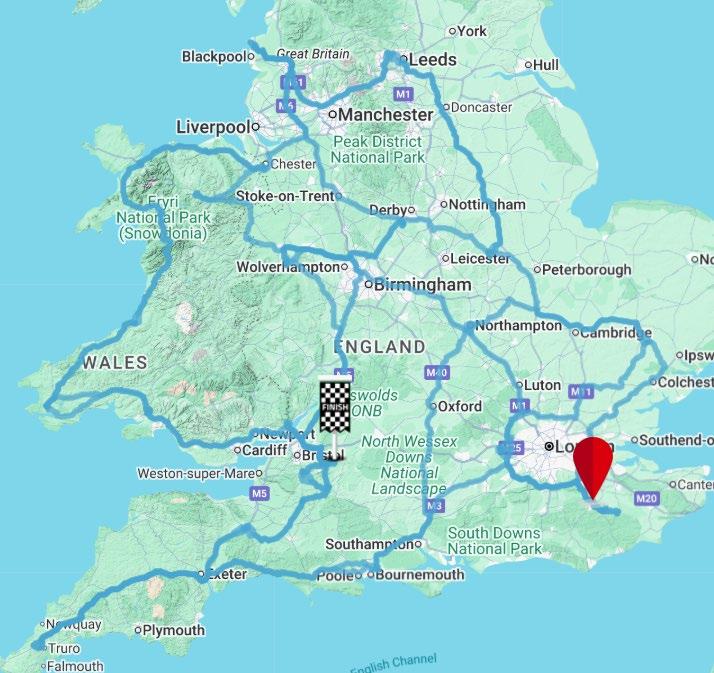
Because the charity does incredible work to transform the lives of vulnerable young people by providing a unique combination of farming, family, and therapy. The funds and awareness raised through this challenge will support the charity’s mission to help young people thrive and re-engage with education.


Jo Hall, co-owner and Development & Marketing Director of allmanhall, commented:
“This challenge was a fantastic way to connect with ISBA members while supporting a cause close to our hearts. Jamie’s Farm’s work aligns perfectly with our belief that good food shouldn’t cost the earth, and that it has the power to change lives. We’re grateful to everyone who shared their time and information with us at the Conference, helping to turn conversations into real-world impact.”
The challenge also reflects allmanhall’s commitment to sustainability, wellbeing, and long-term partnerships, both with clients and within the wider community.



Prep School: 10 portions | Senior School: 7 portions
Prep time: 10 mins
Cook time: 25 mins
Total time: 35 mins
Ingredients:
• 250g unsalted butter
• 250g caster sugar
• 4 large fresh eggs
• 150g fine cornmeal
• 200g self-raising flour
• 1 orange, zested and juiced
• 180g cranberries
• 0.5g ground cinnamon
• 1 vanilla pod
Method:
1. Cream the butter and sugar together, then add the eggs and beat together.
2. Fold through the polenta and flour, then add the zest and juice of the orange.
3. Add the cranberries, cinnamon and vanilla seeds.
4. Place the mixture into 2 lined bread tins and bake for 25-30 minutes until golden brown and cooked.
This recipe was provided by Bidfood. They have over 1,000 recipes available on their website:
https://www.bidfood.co.uk/inspiration/recipes/
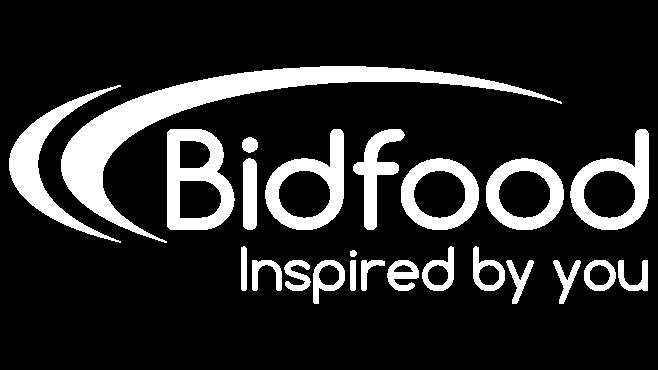



It’s beginning to look a lot like Christmas…
Bidfood’s 2025 Festive Range is here and it’s bursting with inspiration, indulgence, and innovation! From traditional showstoppers to on-trend seasonal treats, the new Christmas Catalogue is your go-to guide for planning a memorable and mouth-watering festive offering.
Explore what’s in store this festive season and start planning!

















Fast, precise prep is vital. Buffalo food prep machines do just that – effective mixing, slicing and storage solutions for demanding kitchens.




















